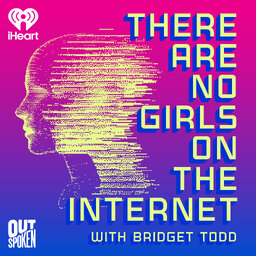She shaped the early days of the internet. Now she’s making it even better.
Denise Duncan has worked in technology since the very beginning of the internet. Now, as the head for project management for Project Liberty, an initiative of Unfinished Labs, she uses tech to build a web that’s more inclusive and open.
Hear more from technologists, journalists, artists, and changemakers using ethical tech to build a fairer economy and a stronger democracy at Unfinished Live, happening in-person at The Shed in New York City, and virtually on September 23rd and 24th, where we’ll be doing our first ever LIVE taping of There Are No Girls on the Internet.
Go to live.unfinished.com and use promo code TANGOTI
Learn more about your ad-choices at https://www.iheartpodcastnetwork.com
In 1 playlist(s)
There Are No Girls on the Internet
Marginalized voices have always been at the forefront of the internet, yet our stories often go over…Social links
Follow podcast
Recent clips

Chris Pratt Is Hawking an Anti-Abortion Prayer App; Elon's Grok Is Doxxing Women; DOGE Bros Let ChatGPT Do Their Job; Trump’s Big DEI Loss – NEWS ROUNDUP
1:07:04

Satanic Panic of the 1980s Is Happening Again — This Time in Minnesota Daycares (w/ Sarah Marshall)
51:40

Amazon Ring Super Bowl Ad BACKFIRES; YouTubers Exploit Women's Arrest Videos; Salesforce CEO ICE "Joke" – NEWS ROUNDUP!
1:10:54
 There Are No Girls on the Internet
There Are No Girls on the Internet